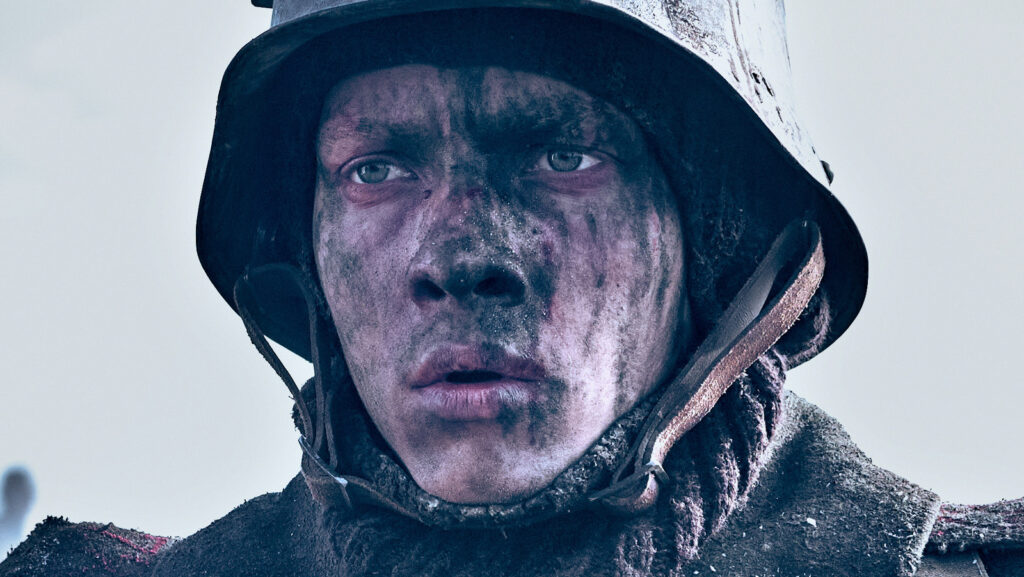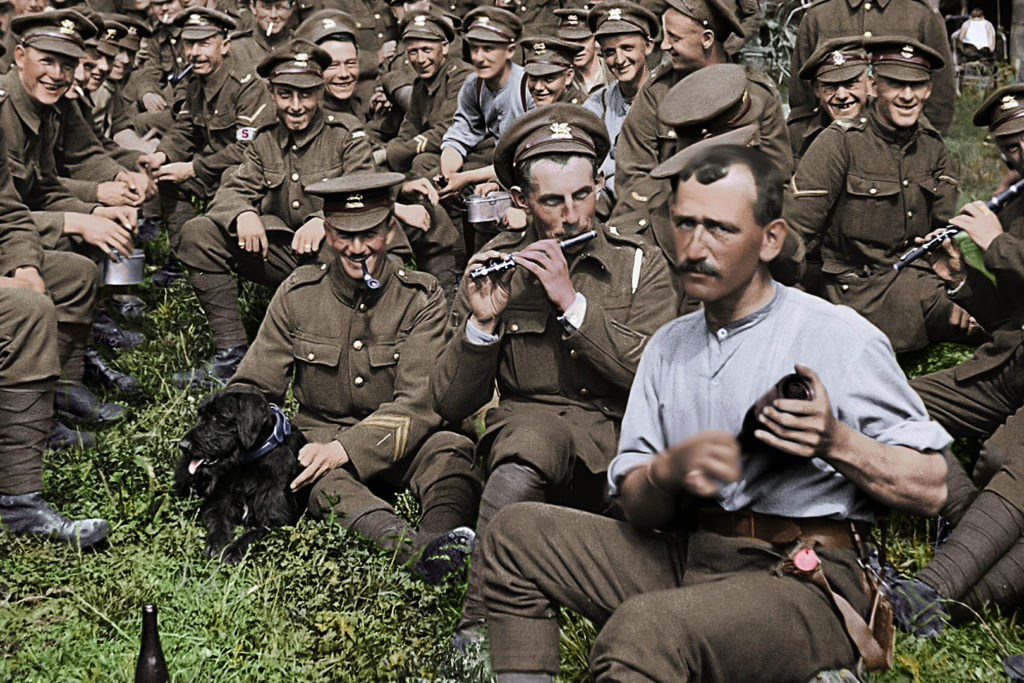
The anti-war epic All Quiet on the Western Front unforgettably makes two points: war, in general, is a traumatizing experience and WW I, in particular, was disgustingly senseless.
The screenplay was adapted from the famous Erich Maria Remarque novel, as was the 1930 Lewis Milestone cinematic masterpiece. Since the story is told from the point of view of a German infantry recruit, Netflix commissioned a German director and cast for this version. That director is German filmmaker Edward Berger, who has been working in US television over the past decade. The actors may be German and Austrian, but they speak English in this movie.
Paul (Felix Kammerer) is a callow youth who, with his friends, is swept away by patriotic fervor and enlists in the German Army just in time to participate in the last few months of WW I. Both sets of belligerents have been grappling for years in the mire of trench warfare, suffering mass casualties for the sake of a few hundred yards here and there. The conditions between battles are horrific, and the battles are more so. Paul endures the terror of bombardment, gas attacks, invulnerable enemy tanks and charges across no-man’s land in the face of machine gunfire. The hand-to-hand combat is especially savage.
Kammerer, in his first screen role, is exceptional as an Everyman who experiences physical and mental exhaustion, dread, panic, shock, guilt and hopelessness.
The battle scenes are superbly photographed by cinematographer James Friend, who has 71 screen credits, not a one suggesting that he was capable of anything this masterful.
War may be traumatizing, but this eminently watchable film is not. All Quiet on the Western Front is streaming on Netflix.

